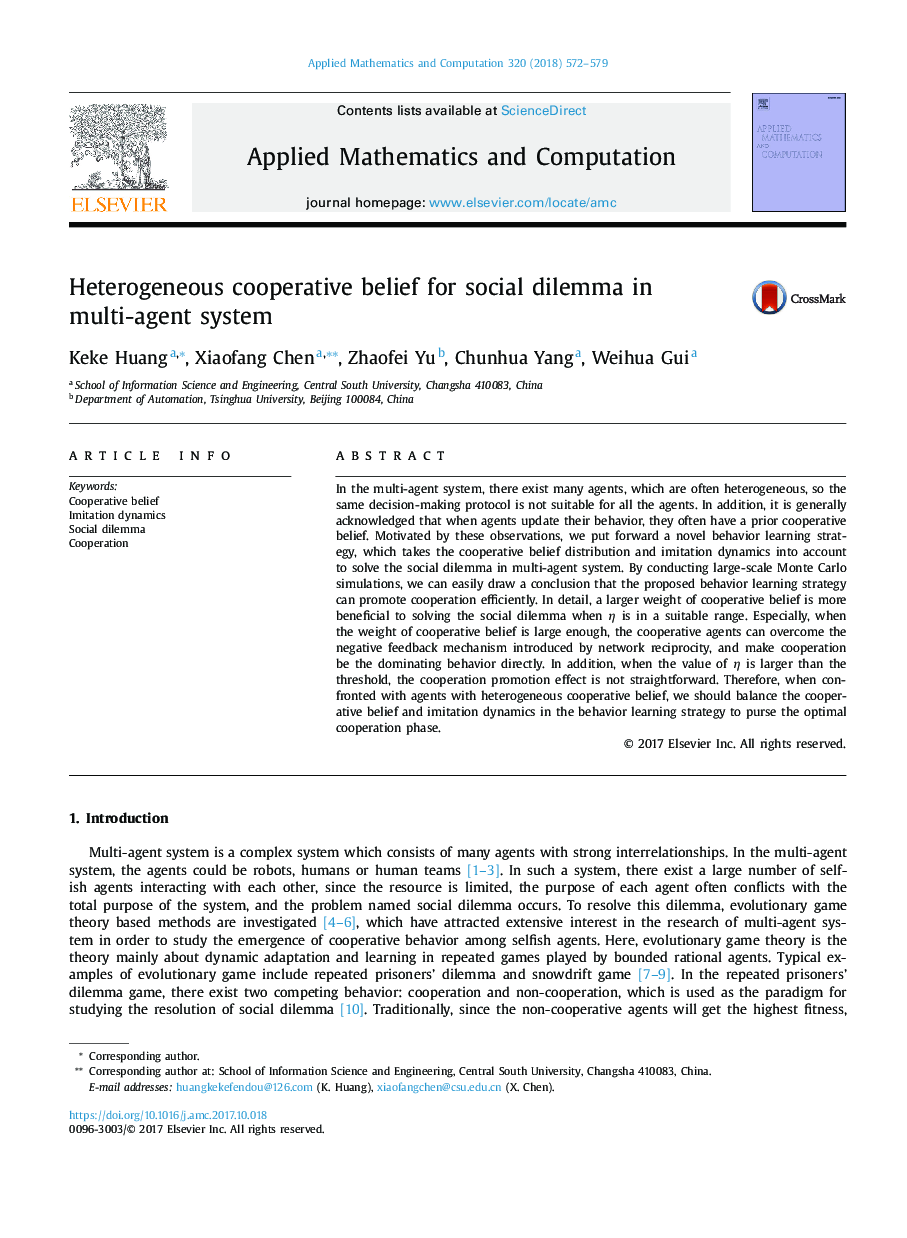| Article ID | Journal | Published Year | Pages | File Type |
|---|---|---|---|---|
| 8901453 | Applied Mathematics and Computation | 2018 | 8 Pages |
Abstract
In the multi-agent system, there exist many agents, which are often heterogeneous, so the same decision-making protocol is not suitable for all the agents. In addition, it is generally acknowledged that when agents update their behavior, they often have a prior cooperative belief. Motivated by these observations, we put forward a novel behavior learning strategy, which takes the cooperative belief distribution and imitation dynamics into account to solve the social dilemma in multi-agent system. By conducting large-scale Monte Carlo simulations, we can easily draw a conclusion that the proposed behavior learning strategy can promote cooperation efficiently. In detail, a larger weight of cooperative belief is more beneficial to solving the social dilemma when η is in a suitable range. Especially, when the weight of cooperative belief is large enough, the cooperative agents can overcome the negative feedback mechanism introduced by network reciprocity, and make cooperation be the dominating behavior directly. In addition, when the value of η is larger than the threshold, the cooperation promotion effect is not straightforward. Therefore, when confronted with agents with heterogeneous cooperative belief, we should balance the cooperative belief and imitation dynamics in the behavior learning strategy to purse the optimal cooperation phase.
Related Topics
Physical Sciences and Engineering
Mathematics
Applied Mathematics
Authors
Huang Keke, Chen Xiaofang, Yu Zhaofei, Yang Chunhua, Gui Weihua,
